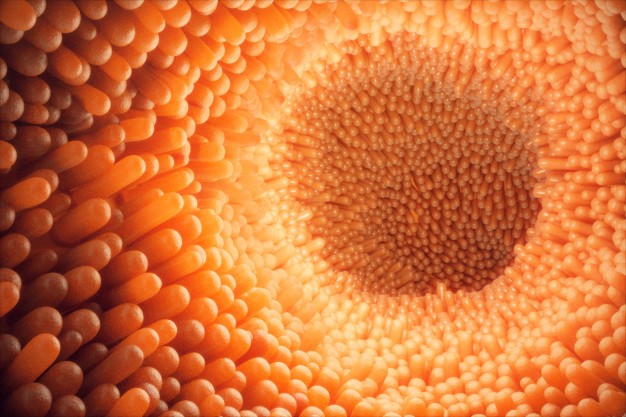An art exhibit from Tasmania’s Museum of Old and New Art (MONA) was recently used to spread awareness about bowel cancer. As well as to spread awareness about screening tests for bowel cancer.
The exhibit is known as the Cloaca Professional, or colloquially as the “poo machine.” And it replicates the gastroenterological journey food takes from chewing to defecation.
Recently Cloaca’s artificial bowel movement was screened for bowel cancer. This was to demonstrate the simplicity of the test, which Australians over the age of 50 have posted to them as part of the National Bowel Cancer Screening Program.
About 4,000 Australians die each year from bowel cancer, with Tasmania having the highest death at 150 deaths per year.
Dr. Daniel Owens, a Hobart pathologist stated that bowel screening would “significantly reduce the rate by catching it early.”
How Can You Prevent Bowel Cancer From Developing?
According to both the Cancer Council of Victoria, and Bowel Cancer Australia, there are several diet and lifestyle measures you can take to reduce your chances of developing bowel cancer.
The Cancer Council recommends that you:
● Eat 5 serves of vegetables and 2 serves of fruit each day
● Consume wholegrain and wholemeal breads and cereals (which are high in dietary fibre)
● Consume no more than 3-4 serves of red meat per week
● Limit consumption of processed meats such as sausages, frankfurts, bacon, and ham
● Consume dairy products (milk, cheese, yoghurt)
● Avoid foods high in salt (as stomach cancer has been linked with high-salt diets)
● Drink no more than two standard alcoholic drinks per day
In terms of other proven lifestyle changes, Bowel Cancer Australia recommends that you:
● Quit smoking (smoking 40 cigarettes per day increases the risk of bowel cancer by around 40% and nearly doubles the risk of bowel cancer death)
● Avoid weight gain and increases in waist circumference
● Be physically active as part of your everyday life (as this can reduce colon, not rectal, cancer by 16%)
They also suggest that you participate in bowel cancer screening as part of your cancer prevention strategy.
How Bowel Screening Prevents Your Risks Of Later Stage Cancers
Bowel cancer screening involves a test to detect signs of bowel cancer even if you aren’t experiencing major or minor symptoms.
Because bowel and colon cancer can develop without any early warning signs, it can grow inside the bowel for years before spreading throughout the body.
However, a simple test called a Faecal Immunochemical Test (FIT) could save your life. This is because oftentimes small amounts of blood will leak from the cancerous growth or polyp and pass into bowel movements.
These traces of blood will be invisible to the naked eye, however an FIT test will reveal them under microscope.
It’s important to note that traces of blood in the stool does not automatically mean that you have colon or bowel cancer. The bleeding could be due to other factors such as polyps, hemorrhoids, or inflammation in the bowel.
If blood is found in your stool, then your GP will refer you to a specialist who can perform a colonoscopy. This will allow you to get a much clearer diagnosis on your bowel health.
Bowel Cancer Australia recommends that people at risk of bowel cancer undergo a FIT test every 1-2 years from age 50.
Want To Learn More Clarity On Your Bowel Health?
If you’d like to learn more about your bowel health, and what options are available to screen for any symptoms of bowel cancer, then don’t hesitate to contact us. We offer a full range of screening and diagnostic technology, and can be found at several locations around Melbourne.
References:
ABC
http://www.abc.net.au/news/2017-11-07/mona-poo-machine-joins-bowel-cancer-fight/9125910
Cancer Council Victoria:
http://www.cancervic.org.au/preventing-cancer/healthy-diet
Bowel Cancer Australia
https://www.bowelcanceraustralia.org/risk-factors/prevention-causes?gclid=Cj0KCQiA5aTUBRC2ARIsAPoPJk-_D2HiwjPgtjzDxvUlz2jQUUAbUTIi0vBtyZc5Rdd04P_1PLzEY4UaAnulEALw_wcB
Bowel Cancer Australia
Bowel Cancer Australia
https://www.bowelcanceraustralia.org/screening
Australian Department Of Health
http://www.health.gov.au/internet/screening/publishing.nsf/Content/bowel-screening-1
- When to get a colonoscopy, why you need one and how it all works - November 22, 2021
- Why Your Doctor Wants You to Get a Colonoscopy - October 12, 2021
- Why Australia’s Bowel Cancer Screening Age Should Be Lowered to 40 - July 23, 2021

